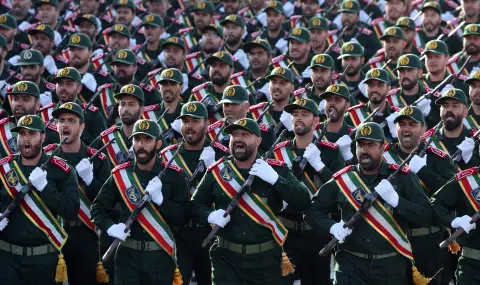Iran last night fired ballistic missiles at Israel in a large-scale attack without warning that sent Israelis scrambling for cover as the security cabinet sat in a bunker and the US prepared its forces , writes in. "Washington Post".
The publication said it was unclear how many rockets landed in Israel, but footage from videos shared on social media showed direct hits in Tel Aviv and the Nevatim air base. in the Negev desert.
After the leader of "Hamas" Ismail Haniya was killed in Tehran, for which US officials say Israel is responsible – the Iranian military elite demanded a response, notes the "Washington Post". The newspaper quoted Iranian President Massoud Pezeshkian as saying at a cabinet meeting on Sunday that Tehran had been persuaded through diplomatic channels to refrain from more serious action and had received assurances from Western countries that there would be an agreement at any moment to stop the the fighting in Gaza and Lebanon. According to him, these promises turned out to be "complete lies".
After days of fierce debate at the highest levels of power, the hawks in Iran prevailed and nearly 200 ballistic missiles were fired into the heart of Israel, according to the New York Times.
Pezeshkian has urged caution in the past, warning that Israel is trying to draw Iran into a wider conflict, the paper said. Just a few days before the assassination of the leader of "Hezbollah" Hassan Nasrallah, he spoke to the UN about his desire to reduce tensions, the newspaper notes.
Iranian conservatives, however, have waged a fierce campaign against the president and the government on social media and in Iranian media, saying their calls for restraint are tantamount to treason, the New York Times reported. Last night's attack on Israel clearly showed which side of the debate is on the rise, at least for the time being, concludes the New York edition.
Last night's footage showing rockets bearing down on Tel Aviv was the clearest possible sign that the regional conflict that so many observers have feared for the past year may finally have begun, the London-based in. "Guardian".
Although there were no casualties, the fact that Israeli cities were targeted will be crucial to Israel's response, the publication noted. After Iran's attack in April, which only targeted military bases in the Negev desert, the retaliation was largely pro forma, the Guardian commented. The only target hit inside Iran was an air defense post at a military base near Isfahan, the paper said.
After Israeli citizens were so clearly threatened last night, Israeli Prime Minister Benjamin Netanyahu can be expected to respond in a far more comprehensive way, the publication notes. It can be expected that the list of targets in Iran will be significant, according to the Guardian. It may also include Iran's nuclear facilities, the publication notes.
There is every chance that last night's Iranian attack was not devastating enough to restore the confidence of Shiites in Lebanon and Gaza in Iran's might while giving Netanyahu a pretext for declaring war, which Tehran has long believed to be he wants to involve him, writes the British "Telegraph".
Iran has long considered "Hezbollah" for its main insurance policy against an Israeli attack on its nuclear program, the paper said.
In recent days, the group's deterrent power has been significantly undermined, which may lead Iran to believe that, once it can no longer rely on Hezbollah, it has no choice but to develop a nuclear bomb, the Telegraph believes. ;.
If Israel considers this to be Iran's most likely policy, it is unlikely that any pressure from the West will deter it from taking actions that would bring the Middle East to a state of full-scale war, the British publication concludes.
